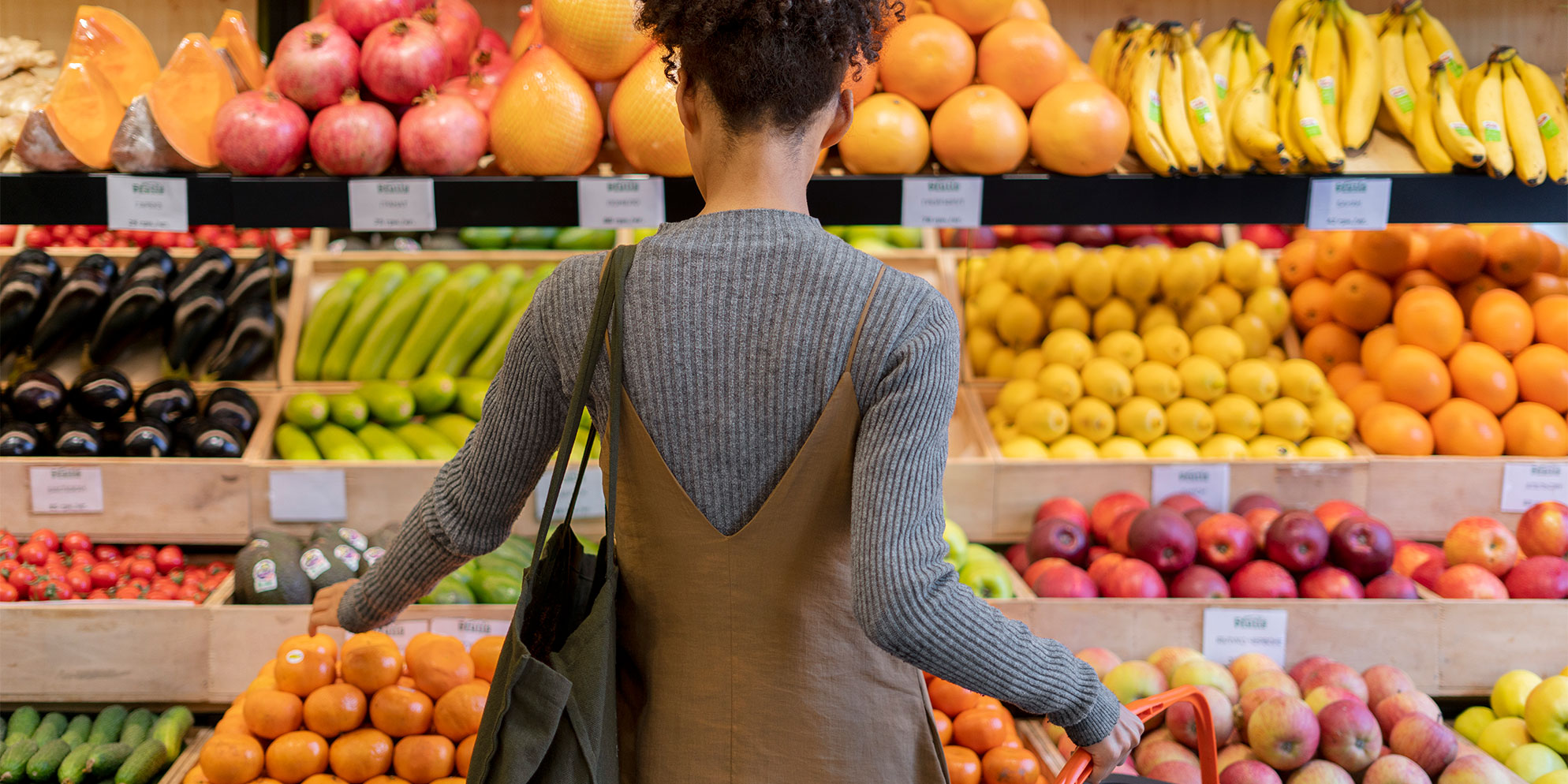It used to be the case that meat was the most expensive item in your grocery basket, while fruit and vegetables tended to be much more reasonably priced. However, climate change effects such as drought have wreaked havoc on crops with the result that vegetable prices, in particular, have soared. For example, data from the Pietermaritzburg Economic Justice & Dignity group’s Household Affordability Index shows that over the past two years, the cost of potatoes, carrots and oranges has spiked.
 10kg potatoes went up 66% from R70.42 to R116.97.
10kg potatoes went up 66% from R70.42 to R116.97.
 5kg carrots increased in price by 25% from R32.78 to R41.04.
5kg carrots increased in price by 25% from R32.78 to R41.04.
 7kg oranges went up 55% from R39.21 to R60.93.
7kg oranges went up 55% from R39.21 to R60.93.
Although we have just entered a cycle of interest rate cuts, money is tight for most people. These five tips will help you maximise the groceries in your shopping cart on a tight budget.
Shrinkflation: Look at the quantity or weight of an item versus the price. Companies often leave prices unchanged, but they reduce the size or weight of the items. This often happens with food such as chips, chocolates, soft drinks and ice cream, or with household cleaners.
Be aware of marketing placement: Take time to look at all the products on the shelf. Often the cheaper products are either on the highest or lowest shelf. The sale sticker price might not be discounted at all, and a “regularly” priced item could well be cheaper.
Buy less meat: Meatless Mondays was an initiative from the Johns Hopkins Bloomberg School of Public Health, and while the name was new, the practice is not. The idea is that you don’t need to eat meat every day. Reducing meat consumption is expected to have a knock-on effect on climate change (fewer cows equals fewer gases) and also reduces your grocery spend. Substitutes could include beans, lentils and/or mushrooms for ground beef, and white beans or extra vegetables for chicken.
Plan ahead: Grocery shops are laid out to encourage you to make impulsive purchases. Use a meal planner and grocery list, then stick to that when you are in the store. Grocery lists in the notes app on your phone are convenient to access and can easily be updated each week.
Frozen food: Frozen vegetables can be just as nutritious as fresh ones, are usually cheaper and don’t spoil, so you save on food waste. And freeze your bread – it’s great for convenience and can simply be taken out a while before you want to use it. It also means you always have a convenient meal option at hand.
Voices unplugged
Each week, readers of the Money Cents newsletter get to voice their opinions or give feedback on a different topic. Here’s what you had to say about your grocery shopping bills and how to reduce them.
David, all the way from Poland, said grocery stores there include the price per full kilogram or litre on all product price tags. “This means that irrespective of the product’s volume, weight and price, you cast your eyes to the bottom corner to see which is the most cost-efficient product at the kilogram or litre level. Then you can understand that the cost-per-kilo difference is astronomical even if the price difference is “only” R10, especially if you are buying bigger quantities,” he says.
An anonymous reader said she orders online to get the best deals and then saves on delivery costs by collecting the items in-store when she does the school run. This saves on petrol costs too.
Liesl has a different approach. She prefers to stick to one store and shop for all the specials there. “You may pay more on some items than elsewhere, but you save time and petrol. One main advantage is that you become familiar with the prices and know when you can get a cheaper version.”
Leonard says most major cities or towns have a market where you can buy fresh produce at the same prices the major retailers buy them. “The only problem is that you have to buy a full box or bag. I’ve been doing this for many years in Joburg and then in Cape Town for the past 12 years. The purchases are shared with family and friends and the savings are crazy.”
He says the only issue is that the trading floor opens at 5am and closes at 10am. “The best days to buy are Wednesday to Friday. On Saturdays, the prices are rock bottom as they are usually trying to get rid of the stock. This is where the hawkers buy and it’s definitely worth a visit,” Leonard adds. DM
This story first appeared in our weekly Daily Maverick 168 newspaper, which is available countrywide for R35.






